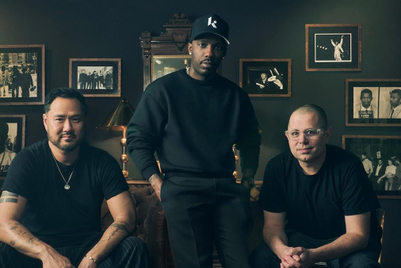
Campaign Asia-Pacific recently featured an article asking what Taiwan’s Foxconn would do with the Sharp brand (see What's next for Japan's once-mighty Sharp after Foxconn deal?).
You might equally well ask what Sharp itself has been doing with its brand over the past few years. According to Interbrand, Sharp (despite being one of Japan’s best-known companies) is not one of the top 30 Japanese domestic brands, nor in the top 30 Japanese global brands in terms of value.
Apparently building the brand wasn’t a priority. We all know that Sharp had many other issues to address, but the most successful global companies have seen brand-building as precisely the way to avoid the commoditization trap that Sharp fell into.
Samsung and Lenovo have poured hundreds of millions of dollars into building consumer brands. Samsung is now the seventh most valuable brand in the world. B2B brands, such as GE, IBM and Microsoft, sit right at the very top of the global brand-value chart, alongside consumer brands such as Coca-Cola, Facebook and Google. And even the most successful components companies have very strong brands. The Intel brand is currently valued at a whopping $35 billion.
The question is therefore what stops Japanese companies like Sharp (and perhaps there are many of them) successfully building their global brands, because if Japanese companies are going to build global businesses today, they will certainly need to build global brands.
Part of the challenge is historical and cultural.
Many big Japanese businesses were built during the decades after the war on outstanding production and distribution. There was a belief, largely justified at the time, that if you make a high-quality product (especially for a good price) it will sell itself. In many ways, that was consistent with a Japanese culture that emphasizes the myth of the craftsman over salesmanship, and a domestic consumer that values substance over sizzle.
After the bubble collapsed, many companies continued to focus on the large domestic market. Only now, with the declining population and static economy are they being forced to look overseas.
The only problem is that the world has not stood still. In the 1980s, only a few American companies were truly globalized. Most companies had little or no presence outside their home continent. At best, companies globalized by having a subsidiary in another market which reported numbers.
Today, multinational companies come not just from the US and Europe but China, India, Brazil, Turkey and the Middle East. Of course, quality, low-cost production is no longer enough to win the battle. In order to compete in this much more challenging environment, even companies from less developed markets have become much more sophisticated in brand-building. They hire senior marketers with global brand-building experience. They have built strong structures and governance, and have invested in people, research and brand equity over decades.
None of this is to say that Japanese marketers must copy what everybody else is doing, and there are some Japanese companies building outstanding global brands. But it does need to be emphasized that global brand marketing is a core skillset, every bit as much as production or R&D, that Japanese companies need to master so that Japanese products can be appreciated throughout the world, and Japanese companies can thrive.
The starting point is surely a true conviction that marketing and brand-building is worth investing in. For business leaders raised in finance or production, this is not necessarily intuitive. Brand value can seem a rather abstract concept versus strong product features or clear facts. In some large companies, there is not even a marketing director, far less a director of consumer experience, and too much of a willingness (which perhaps stems from lack of confidence overseas) to allow local subsidiaries to do their own thing.
It will take a lot of effort for Japanese companies to shift from being production-driven to being consumer-driven, but as we approach the 2020 Olympics, there has never been a better moment for Japanese brands to take control of their own destiny.
John Woodward is chief strategy officer of McCann Worldgroup Japan. He has lived and worked on global brands in the UK, France, Italy, Australia and Hong Kong.
This article originally appeared in Japanese on Campaign Japan.


.jpg&h=334&w=500&q=100&v=20250320&c=1)

.jpg&h=334&w=500&q=100&v=20250320&c=1)
.jpg&h=334&w=500&q=100&v=20250320&c=1)

.jpeg&h=334&w=500&q=100&v=20250320&c=1)


.jpg&h=334&w=500&q=100&v=20250320&c=1)



.jpg&h=268&w=401&q=100&v=20250320&c=1)

.jpg&h=268&w=401&q=100&v=20250320&c=1)
.jpg&h=268&w=401&q=100&v=20250320&c=1)

